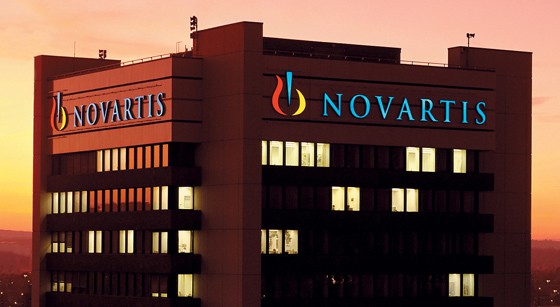
The FDA’s Oncologic Drugs Advisory Committee (ODAC) voted unanimously in favour of approving Novartis’ ground-breaking CAR-T therapy for acute lymphoblastic leukaemia (ALL) yesterday, setting up a possible US approval in September.
CTL019 – also known as tisagenlecleucel-T – is now on course to be the first CAR-T therapy to be approved anywhere in the world and usher in a new era of personalised, cell-based immunotherapy for cancer. Its lead indication is for relapsed and refractory children and young adults with B-cell ALL.
If Novartis can claim approval in ALL and follow-up indications such as diffuse large B-cell lymphoma (DLBCL), analysts reckon CTL019 could become a $1bn-plus product.
In CAR-T therapy patients’ cells are harvested and modified so they are more likely to seek out and destroy cancer cells expressing a particular antigen, in this case CD19. Once reprogrammed the T cells are infused back into the patient in order to fight the cancer.
The data presented to the ODAC revealed 83% of 63 patients in Novartis’ main ELIANA trial of CTL019 went into remission, with a relapse-free survival rate of 75% after six months and 64% at 12 months.
Contrary to expectations, the ODAC deliberations focused on relatively minor concerns about the manufacturing of CTL019 and the need to keep tabs on the data with the therapy after approval, and did not dwell for too long on the safety of the approach.
Novartis’ CAR-T can be tough to tolerate, with almost half (48%) of patients experiencing cytokine release syndrome (CRS), a serious complication that can be life-threatening, although there were no deaths in Novartis’ trial.
Fatalities due to cerebral oedema have occurred with other CAR-T therapies however – notably Juno Therapeutics’ JCAR015 which was discontinued in March and another candidate from Kite Pharma – and as a result the safety of CTL019 had been expected to come under close scrutiny.
Novartis hasn’t seen any examples of deaths caused by cerebral oedema, and the panel was happy with its strategy to reduce the risk of CRS, which includes making the drug available through a limited network of specialist clinical centres, and focused more intently on how the company ensures the CAR-T cells it administers to patients are free of other cell types that might be transformed by its viral vector.
There was also some questioning related to the chances of the viral vector replicating itself in patients, although this has not been seen to date in any of Novartis’ clinical trials. The company is planning to maintain a patient registry to help monitor patients who receive the therapy.
Novartis has confirmed it will file for approval of the cell therapy later this year in the EU, where it became one of the therapies to enter the EMA’s new PRIME expedited approval pathway.
Meanwhile, the ODAC endorsement is also good news for UK company Oxford BioMedica, which supplies the lentiviral vector used to transform the T cells in CTL019 and other CAR-T candidates in Novartis’ pipeline.
Last week Novartis and Oxford Biomedica expanded their partnership in this area, and analysts at Jefferies predict the UK form could see a “sustainable revenue stream” of up to £75m ($97m) per year if CTL019 is approved.
Another CAR-T candidate – Kite Pharma’s KTE-C19 (axicabtagene ciloleucel) for an aggressive form of non-Hodgkin lymphoma – is under review and due for an FDA decision in November.




